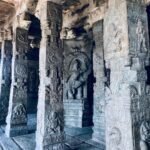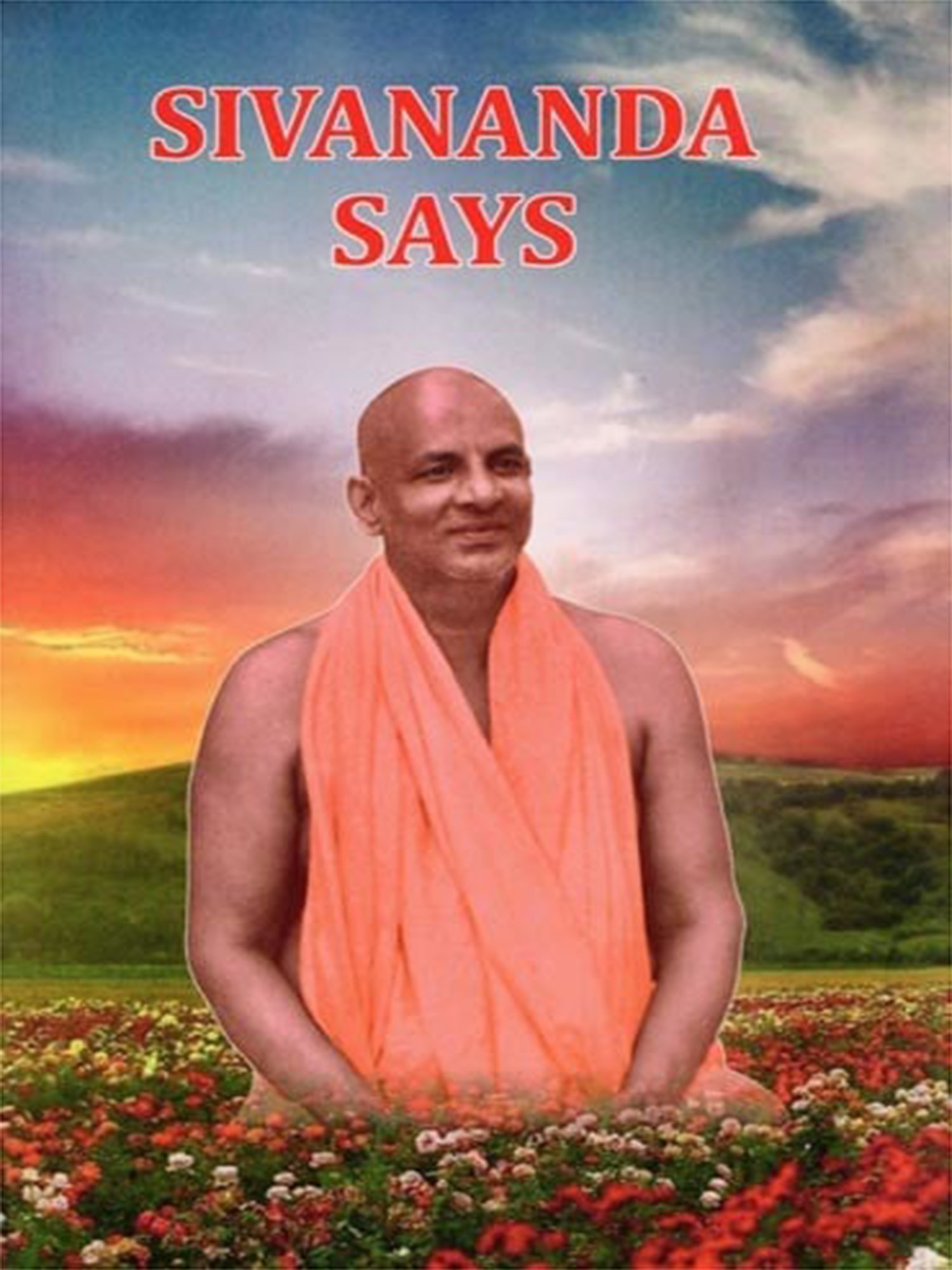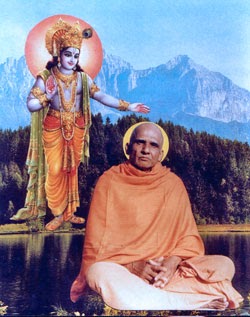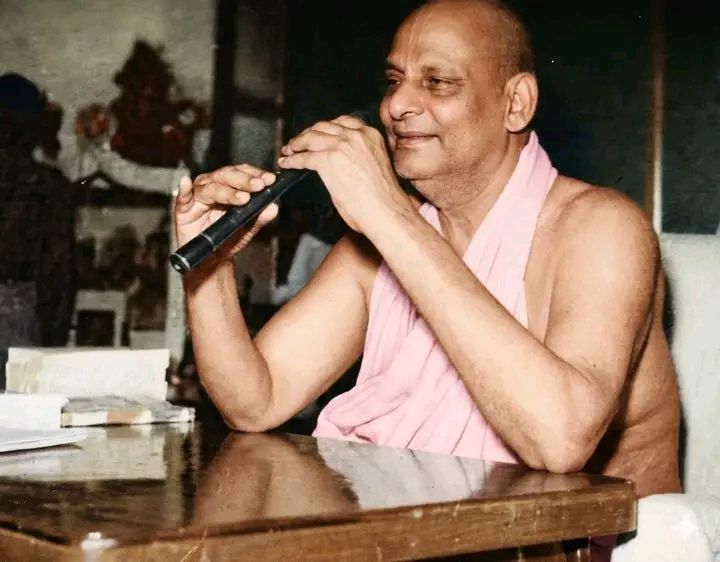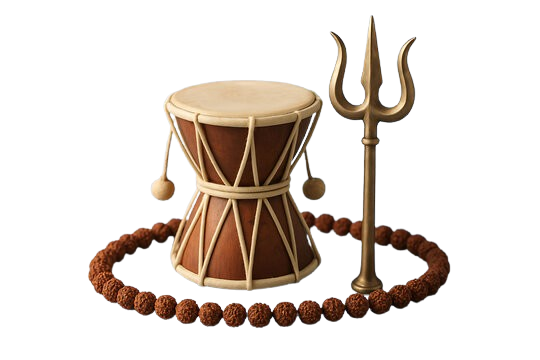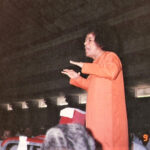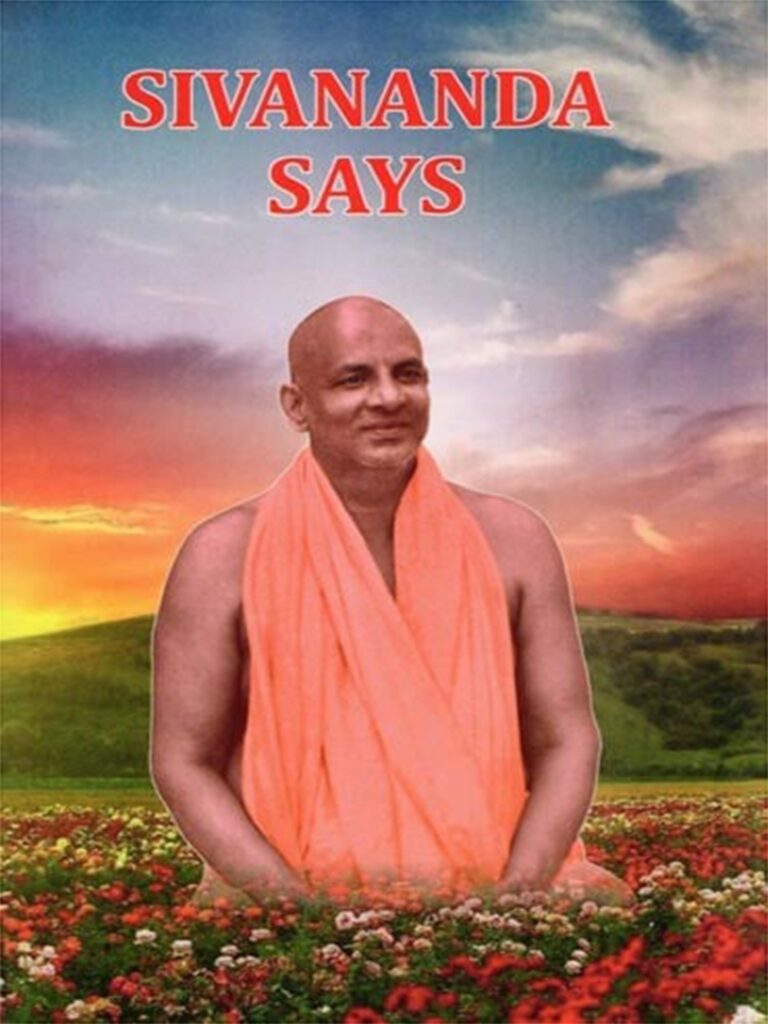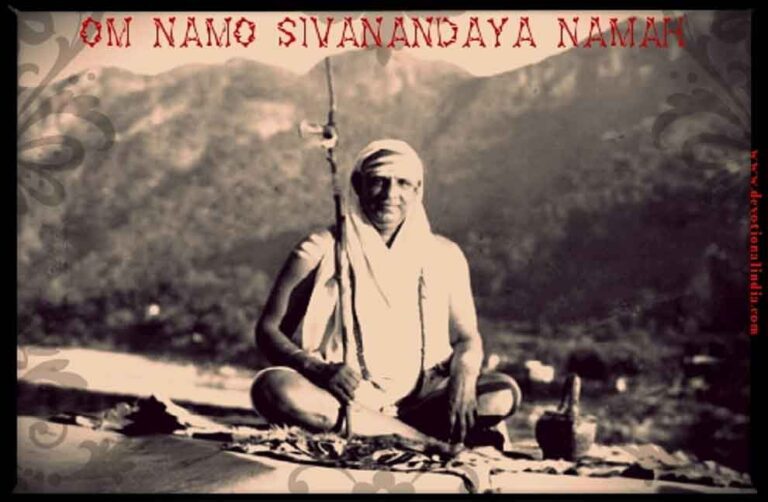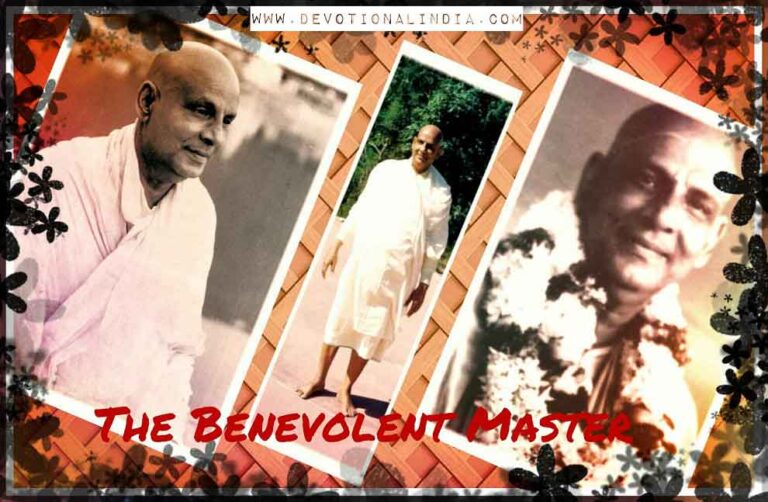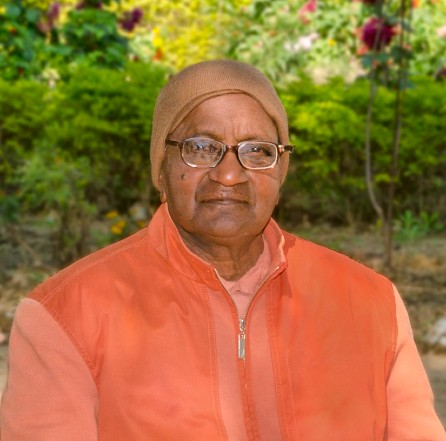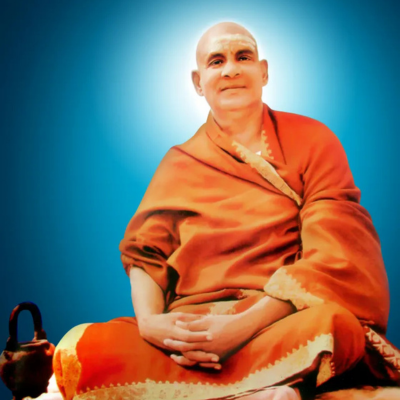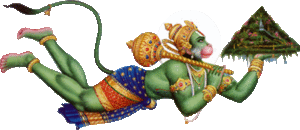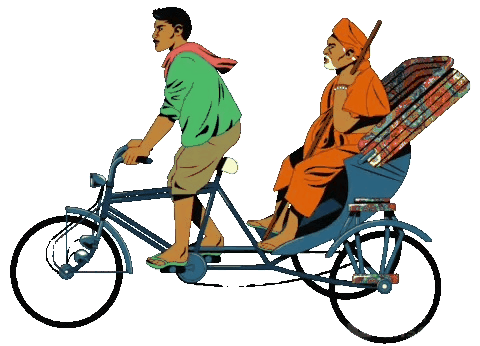CONVERSATIONS WITH SAI Satyopanishad
Satyopanishad – Part Twenty Seven
Direct Directions from the Divine
CHAPTER VII:
Sadhana, The Inner Door
Prof. Anil Kumar: Swami! What are the sources of our peace, happiness, wealth, comforts and conveniences? How do we get them? Why are some denied these most coveted things?
Bhagavan:¬†You don’t get anything in life for nothing. One gets these things in life because of any one of the following three reasons. Take one simple example: You know banking. You are an account holder. Suppose you want some money. What should you do? You go to your bank and get the amount. But you should be having enough money to your credit and by submitting a cheque, affixing your signature you can withdraw the money you want.
If you have nothing to your credit in the account; you don’t get any money. Yet, you need money. How to get it? If you mortgage your permanent assets like gold or landed property, the bank will give you some money proportionately. You may not have permanent assets. Still you want money. Then, if a rich man stands as a surety or guarantor, the bank will give you the amount you need. Thus, these three are ways of getting money from the bank.
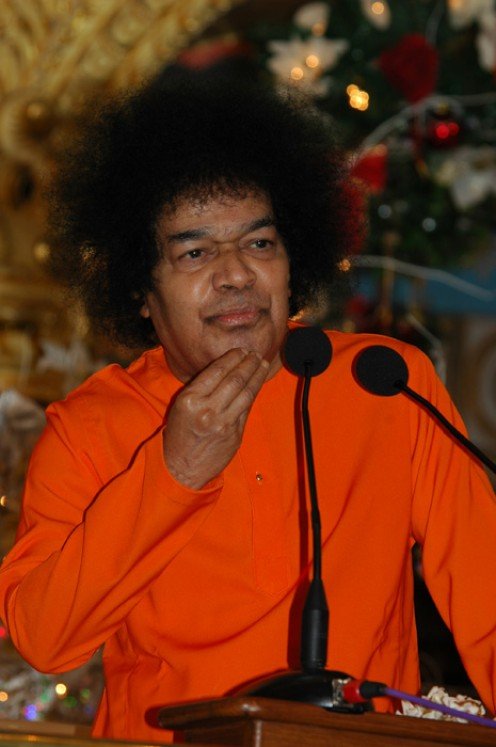
Here money is God’s grace. If you are doing some good deeds in the present i.e. depositing some amount of money in your account, you can withdraw the money of God’s grace in the future. If in the present there is no such credit, at least the good deeds you did in the past, that is to say, your permanent assets when mortgaged to the bank, entitle you to receive money. Without these two good acts you may still be eligible to draw money from your bank if a rich man i.e. God or an Avatar or a Sadguru stands as your guarantor.
So, you receive God’s grace either because of your past merit, or present merit, or if a rich man stands as a surety or guarantor. There is no other way. These are the reasons for a person’s affluence, luxury, life of happiness, comforts and conveniences.
Prof. Anil Kumar: Swami! You tell us that we are not mrnmaya (dust thou art), but chinmaya (you are awareness). Therefore, we devotees should know that we are not simply the body, but awareness. You also repeatedly say, You are God. Then, when I am God, aham brahmasmi, why should I pray? Where is the need for all this spiritual exercise, then?
Bhagavan:¬†whether you know, agree and believe or not you are God indeed.¬†“Mamaivamso jivaloke.,” said Krishna in the Gita, which means “You are Mine, you are the spark of My Divinity.”
The three divine attributes sath, being, chith, awareness, and ananda, bliss are in you. Prajna, conscience in you is divine. So, it is said, prajnanam brahma. The great mahavakya, the supreme statement, also says, tattvamasi, That thou art.
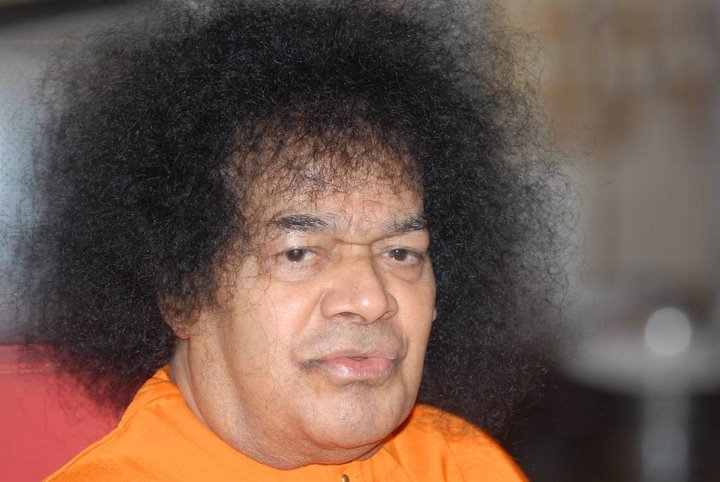
We have today intelligent people who observe plurality or multiplicity in unity. But good, noble, and pious persons who find unity in diversity are rare. Once it so happened that a little tiger cub got mixed up in a flock of sheep. Thus, moving about with the group for some time, the cub thought that he was also like the sheep and belonged to their families.
One day a tiger came that way and attacked the sheep. On seeing the tiger, the cub started shivering, and said, “Oh! Don’t kill me. I am one of the sheep, after all, so weak”. Then the tiger spoke to the cub, “Why do you fear? You are not one of the sheep. You are a tiger. Come on! Follow me.
Look into the river and see your reflection there in this water and compare your figure with mine. You will find the same stripes on the coat of your body, a moustache on your mouth and a roaring sound in your voice. Why do you think you are one of this flock of sheep. Oh dear one! You have forgotten your true identity and nature”. The cub then realised its true nature and abandoned fear from its mind.
Similarly, in the field of spirituality, a guru, through his upades’a, divine teaching, tells you your true identity. Once you separate yourself from all that is not your true Self, spirit or atma, you will experience your reality, i.e. atma. Therefore, self-enquiry is very essential. I say “You are God” but this truth has not come into your experience. You should continue your spiritual practice until you’ve experienced it. You have to continue your bhajans, meditations, etc., till the reality is experienced.
Prof. Anil Kumar: Swami! By now we have known about divinity very well. What more do we need in this world?
Bhagavan: You are mistaken. It is not enough if you merely know. If you spend your lifetime reading books when are you going to experience bliss? It is experience which is important and not bookish or scriptural knowledge. The Gita refers to three specific steps in spirituality, jnatum, knowledge, drastum, sight and pravestum, experience.
Suppose you want to eat a delicious item. What do you do first? For example, you know about the delicacies kurma and pulao. Then in the next step, these two items are to be served in a plate. It is not enough if you know(jnatum) the items and see them (drastum). You have to eat and enjoy the dishes (pravestum) and experience.
Mere information and knowledge are useless. You should practice and realise. This is wisdom and when you attain it, you find yourself immersed in bliss and you remain speechless.
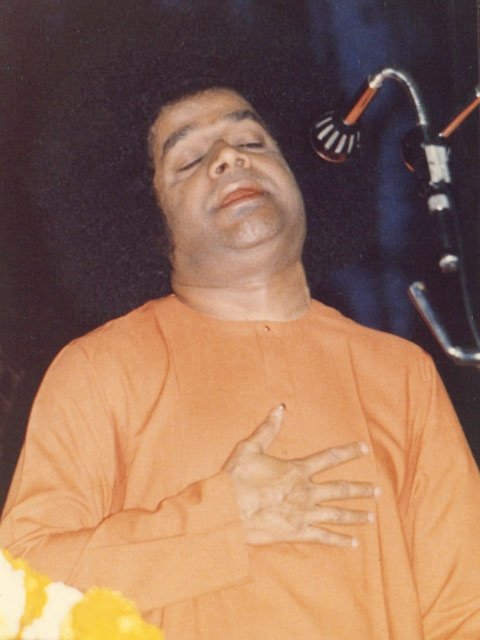
The same thing has been explained in the¬†Brahma sutras¬†also. The first principle is:¬†athato brahma jijnasa¬†which means,¬†athato, hereafter,¬†brahma, about God,¬†jijnasa, developing interest. But what is meant by ‘hereafter’? When exactly should we develop interest in Brahman? This word “athato“, is interpreted in several ways by scholars and visionaries; they run to volumes. But what is first needed is¬†karma jijnasa, interest in action, later¬†dharma jijnasa,¬†interest in discrimination, and finally¬†brahma jijnasa, interest in divinity.
Here is a simple example: Suppose you want to eat coconut chutney. What do you do first? You procure all the material necessary for its preparation; this is karma jijnasa. You should grind all the material so procured nicely; this is dharma jijnasa. You have to keep it on the tongue to decide the taste and to know if anything else should be added to it; this is brahma jijnasa. This means mere karma jijnasa is not enough. You need at the next stage, dharma jijnasa and finally, you develop interest in Brahman, brahma jijnasa. The wisdom so gained must be practised and experienced. You should share the bliss with others.
Prof. Anil Kumar: Swami! We do both good and bad deeds. Don’t our good actions nullify the evil effects of our bad actions? Don’t they at least balance each other? In other words, will our good actions cancel the bad effects of our misdeeds?
Bhagavan: You are thinking like a Commerce student, along the lines of credit and debit. But, God is a Super Divine accountant. His balance sheet is not of your type. He will make you face the consequences of your actions, good for good actions and bad for bad actions. He will not add or subtract any of the consequences of your actions.
A small example: Suppose you have some seeds of both thorny plants and fruit-bearing trees. What happens when you sow them? The seeds of the thorny plants germinate into thorny bushes while the seeds of the fruit-bearing trees grow into fruit- bearing ones. Germination will never happen in any other way. The same is the case with your sinful deeds and the meritorious.
You must have seen persons who vow to offer ten thousand rupees to Lord Venkateshwara if they win a lottery of ten lakhs. Can’t they understand that God, who can give you ten lakh rupees, doesn’t expect your ten thousand rupees? They don’t think reasonably and logically. People think according to their worldly standards. But, Swami wants you to spiritualise your mundane actions as well.
Prof. Anil Kumar: Swami! Is it not enough if we are good? How can we know God?
Bhagavan:¬†Remove one o from ‘Good’. If that extra o,¬†prakruthi¬†or body feeling is given up, it becomes God. You know the letter “W”. It is double ‘you’, i.e., the individual soul,¬†jivatma,¬†and the cosmic soul,¬†paramatma. It is the illusion,¬†maya,¬†that prevents you from knowing the unity of the two. If you repeat “my” a couple of times, it will sound like “maya“.
It is the feeling of ‘mine’ and ‘thine’ that is responsible for all the miseries of the world. You are least disturbed if your neighbour’s car is damaged. But if there is a slight scratch on your own vehicle you are much worried. If your neighbour sells or disposes off his house it matters nothing to you. But if circumstances force you to sell off your own home, you feel very sad. Why? The feeling “this is my house”, makes you sorrowful. This feeling of ‘mine’ is¬†maya.¬†If this is gone, you will experience unity in diversity.
Prof. Anil Kumar: Swami! It is said that we can’t escape from the consequences of our actions. Why do we find some wicked people happy in spite of their treacherous deeds?
Bhagavan: Here we should note one important point. You say some wicked people are happy. They may do all the misdeeds smiling, but later they have to cry and suffer.
Some actions give results immediately, while others take a long time. Here is a small example: If a blade cuts your finger, blood gushes out immediately; this is an action that gives result immediately. To draw milk from the udder of a cow it takes some time; this is the second category of action. It takes food a few hours to be digested; this is the third category of action.
“Punarapi jananam punarapi maranam¬†punarapi janani jathare s’ayanam” (life is a continuous cycle of repeated births and deaths). After death one has to go back to the womb of the mother and be born once again. It is only life after life.
But spirituality helps you, so to say, not to be born. Having departed, you don’t have to die once again by having another birth. You take medicine so that you don’t have to fall sick once again. Death should take you to immortality.
If you sow a seed, it takes a long time to germinate and grow into a plant. So also your actions give results at different points of time. It is all a question of time. One must necessarily face the consequences of one’s own actions without fail.
Prof. Anil Kumar: Swami! Since all forms and names are Divine, what is the need then for the Lord to incarnate in human form?
Bhagavan: You do not know until I tell you that all forms and names are His. You need to be told of the Divine nature i.e., sath, being, chith, awareness, and ananda, bliss. This is the purpose of incarnation. God in human form is the embodiment of love. He teaches and makes everyone experience love.
Though flowers, thread and a needle are present,
Don’t you need someone to make a garland?
In spite of gold and pearls being available,
Shouldn’t you have a goldsmith to make a chain?
The wick, container and oil will not give light
Unless you light the lamp, will they?
Avatar, God incarnate, sets an ideal for the entire humanity. There is nothing He needs in this world as everything is His only.
Prof. Anil Kumar: Swami! We feel that life is going on and on; but it sounds purposeless and aimless. Kindly tell us about the purpose of life
Satyopanishad – Part Twenty Eights
CHAPTER IX:
Scriptures and Baba – Ramayana
Prof. Anil Kumar: Swami! Kaikeyi had sent Rama to the wilderness on the eve of His installation as the crown prince. What was Rama’s attitude to her? Generally, it would be one of hostility, wouldn’t it?
Bhagavan:¬†Rama is the embodiment of¬†Dharma, the personification of tranquility. Under no circumstance did He hate Kaikeyi. It was only after bowing down at her feet that He left for the forest accompanied by Sita and Lakshmana. Longing for the¬†darshan¬†of Rama, Bharata too proceeded to the forest, accompanied by feudatory kings, the army, citizens of Ayodhya, and the sages. Falling at Rama’s feet, he sought to be pardoned, and prayed to Rama to return to Ayodhya and rule the Kingdom. Kaikeyi stood pitiably to one side.
Rama surveyed the gathering. Right away Rama addressed Bharata with these words: “Bharata! Has mother Kaikeyi arrived? Where is she?” Turning to her, Rama bowed at her feet. Her words, like the prelude to a great drama, had inaugurated the mission of the incarnation
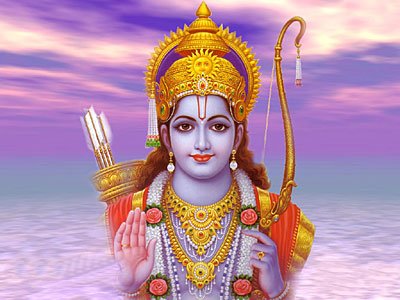
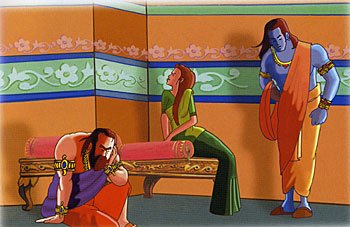
Moreover, in this context, Rama had to uphold another¬†dharma¬†as well. At the time of Kaikeyi’s wedding with Dasaratha, her father, the king of Kekaya, had made known his desire: “O King Dasaratha! You have contemplated marriage with my daughter, Kaikeyi, in order to have progeny.
Then, it is her son, who should become king, your successor, shouldn’t he? Is this acceptable to you? If your queens Kausalya or Sumitra give birth to sons, Kaikeyi’s son would lose the right to kingship, wouldn’t he?” King Dasaratha listened to this wish, consulted Kausalya and Sumitra in the matter, apprised them of the implications, and won their approval.
Prof. Anil Kumar: Swami! Is it right on the part of Rama to kill Tataka, a woman?
Bhagavan:¬†Rama embodies¬†dharma. Along with Lakshmana, He went to the forest led by Viswamitra only to destroy the demons. By defiling¬†yajnas¬†and¬†yagas¬†(sacrifices)and killing great sages these demons turned hermitages into cremation grounds. In fact, the very purpose of Viswamitra’s request to Dasaratha, that is, sending Rama and Lakshmana to the forest, was the destruction of the demons. The sage, if he so desired, could have himself put an end to the ogres. But, as he was under the vow of¬†yajna, he was prohibited from resorting to violence.
Moreover, the mission of the incarnation of Rama awaited fulfillment. Everything has to proceed according to the Master Plan. The actions of the demons were extremely cruel. In order to wipe out this pitch of cruelty and to protect¬†dharma, the demons had to be destroyed. Tataka may be a woman; but her actions were demonic, weren’t they? Therefore, killing Tataka was just and fully in consonance with righteousness.

In this matter, whether the agents of wickedness are men or women is immaterial. What is crucial is the usefulness of their deeds. Because of his unrighteous conduct, Vali, the king of the monkeys, though a male was not spared, was he? Tara did advise Vali: “Lord! Sugriva was only a few days ago mortally wounded and fled. How come he is now brave enough to challenge you? He has the support of Rama, don’t you know? Rama is, indeed, no ordinary man. Though you are very valiant, Rama is bent on assisting Sugriva and killing you, because of your unrighteous deeds. Seek refuge at Rama’s feet!” Vali paid no heed to her words, and fell a prey to Rama’s arrow. Thus, the primary criterion is restoration of¬†dharma. Gender is irrelevant.
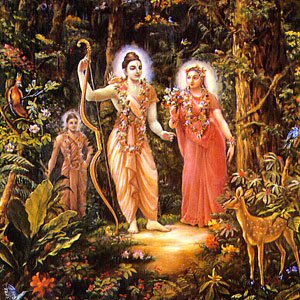
Prof. Anil Kumar: Swami! Pardon me and treat this question as arising from the influence of modernity. Our society regards Sita and Rama as the ideal couple. Now, kindly do not get angry, Swami, Please! What happiness was there for this couple? Only troubles, for sure! How can this be ideal matrimony?
Bhagavan:¬†That ideal can be put in a nutshell. Not once did Sita transgress Rama’s command; likewise, not once did Rama oppose Sita’s wish. This is ideal matrimony. You may have in mind the abandonment of Sita on the report of a washerman’s words. Is it not possible that, in the kingdom there may be others besides the washerman who entertained doubts about the chastity of the virtuous Sita? Those were the words uttered by the washerman; many others may have felt the same way. The episode of Sita’s ordeal by fire serves only to proclaim her chastity to the world. Rama knows everything; He is omniscient.
Bhagavan:¬†Not at all. Kaikeyi desired that Rama should be sent to the forest. There was no need for Lakshmana to accompany him. Voluntarily Lakshmana gave up royal pleasures and luxuries, and left behind his noble wife, considering serving Rama day and night his chief duty. Therefore, Lakshmana stands as a symbol of total surrender. This proposal of Lakshmana to rule Lanka is significant for it had occasioned Rama’s response which was a clear message to humanity. Rama countered Lakshmana’s suggestion with these words:¬†“Janani¬†janmabhumis’ca¬†svargadapi gariyasi‚Ä̬†meaning,‚ÄúMotherand motherland are greater than even Heaven”.¬†Even if your mother is ugly, does she cease to be your mother? Just because she is beautiful, does a stranger become your mother?
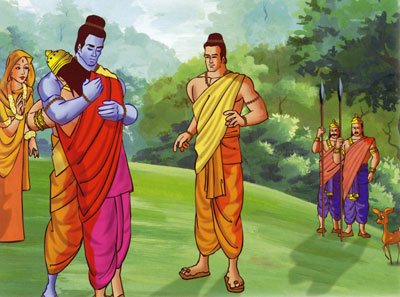

n this situation, you may get the impression that Lakshmana is quickly incensed. Such a conclusion is not fair. If the intention was only to pray to Rama to take back thle kingdom, could not have Bharata come alone? Why should he be accompanied by a huge army with its four arms? This is what roused Lakshmana’s suspicion, and not his hasty judgement, as you may suppose. But that was not Bharata’s fault either. When he set out to pray to Rama to rule Ayodhya, the¬†rishis, the armed forces, and several leaders followed him for the¬†darshan¬†of Rama. Thus, Bharata is not to blame. Today, it is very necessary to appreciate rightly the characters drawn in our epics and scriptures¬†–¬†their motives, the wellsprings of their action, as well as their grandeur, solemnity and generosity. You should not ascribe your attitudes to those characters.
Satrughna bore immense love for Rama. Here is an instance: Along with Bharata, Satrughna returned to Ayodhya. This incident took place when they left the kingdom of Kekaya, their maternal uncle. Learning that Kaikeyi was responsible for sending Rama to the forest and for planning Bharata’s coronation, he was heart‚ÄĎbroken. He also came to know that it was the evil counsel of Manthara that made Kaikeyi ask Dasaratha to fulfill the two boons. Enraged, he cast a look of unbridled wrath at Manthara who happened to be passing that way. At that hour Manthara was very happy. News of the crowning of Bharata, her Queen’s son, had sent her into rapturous joy..



